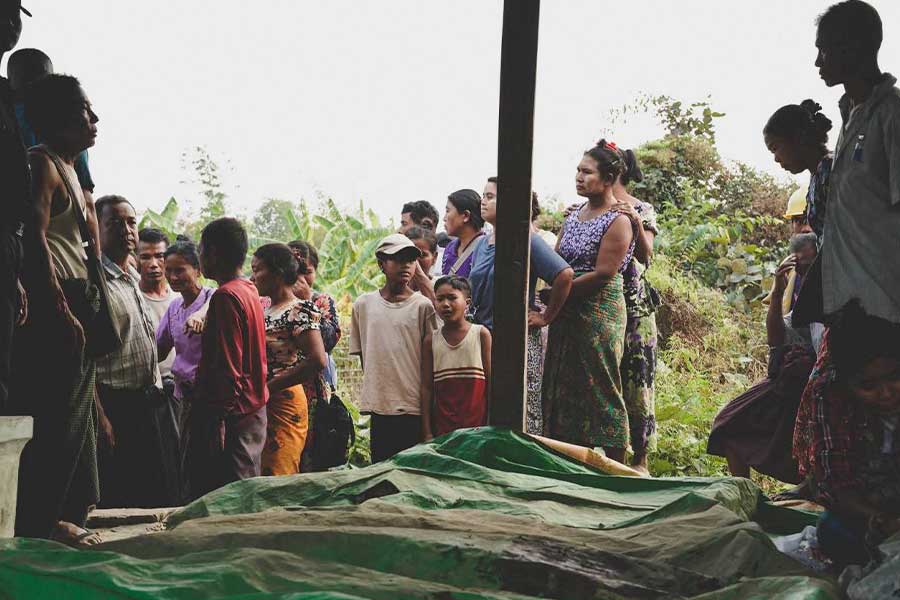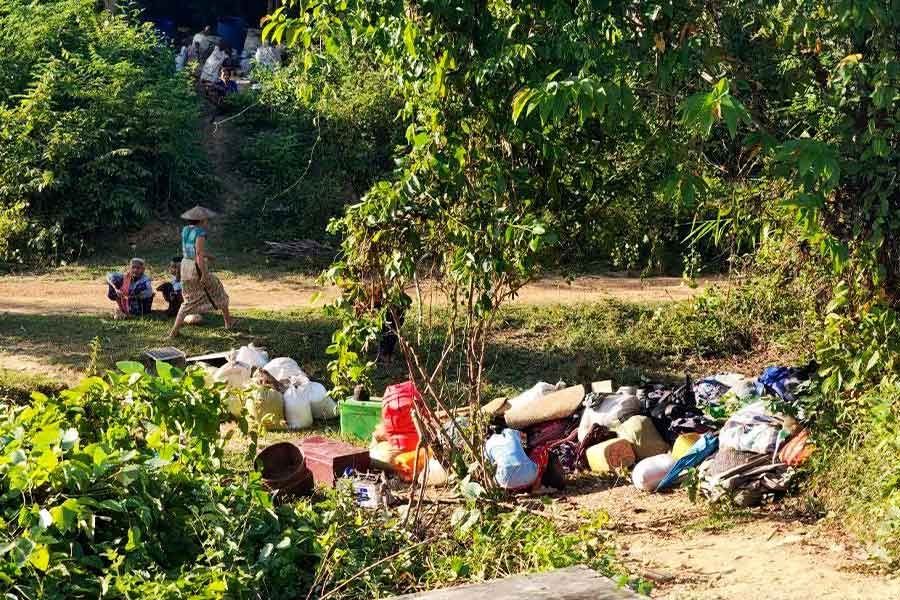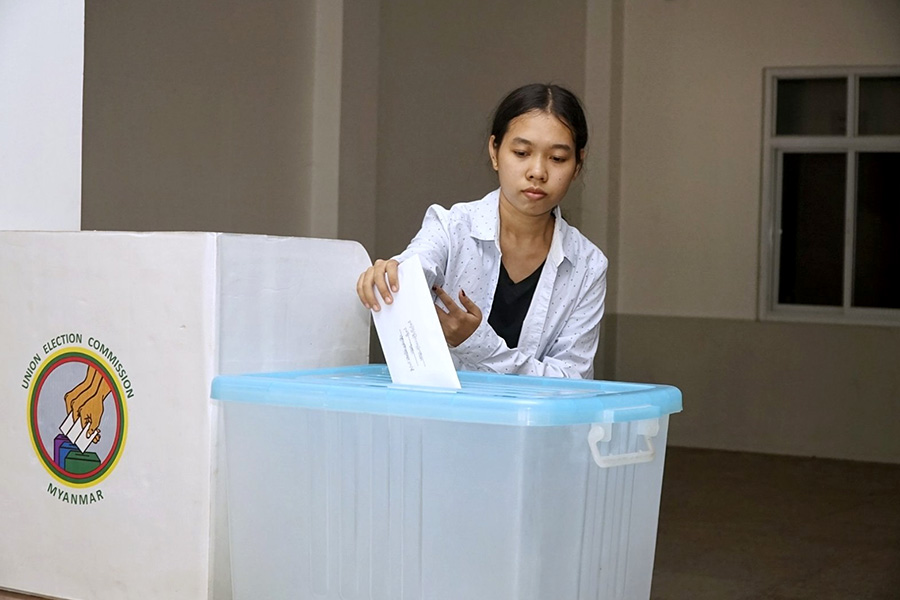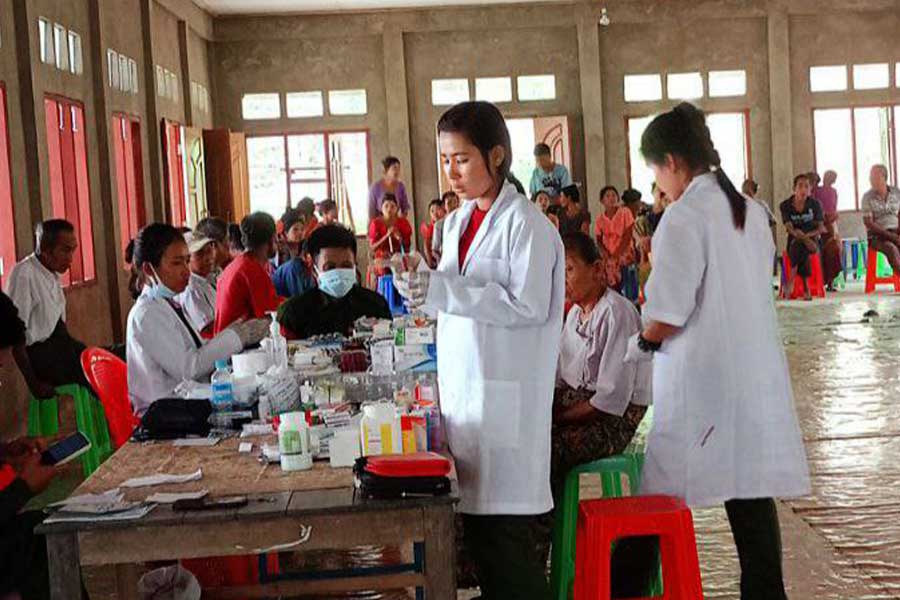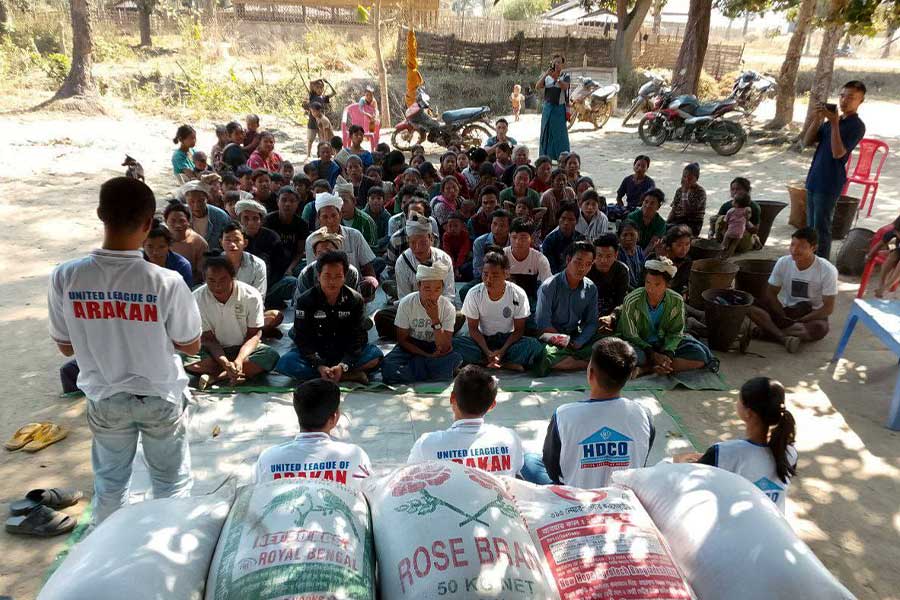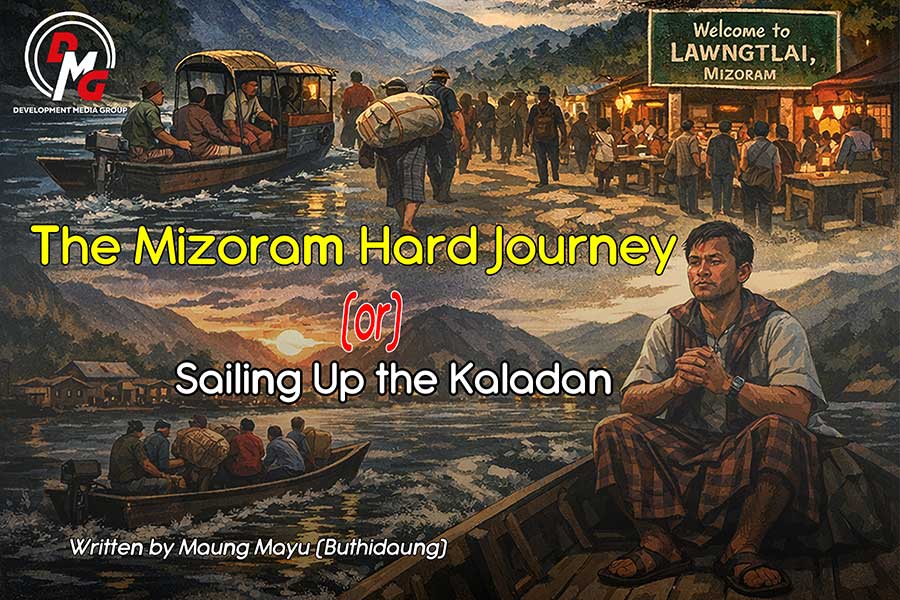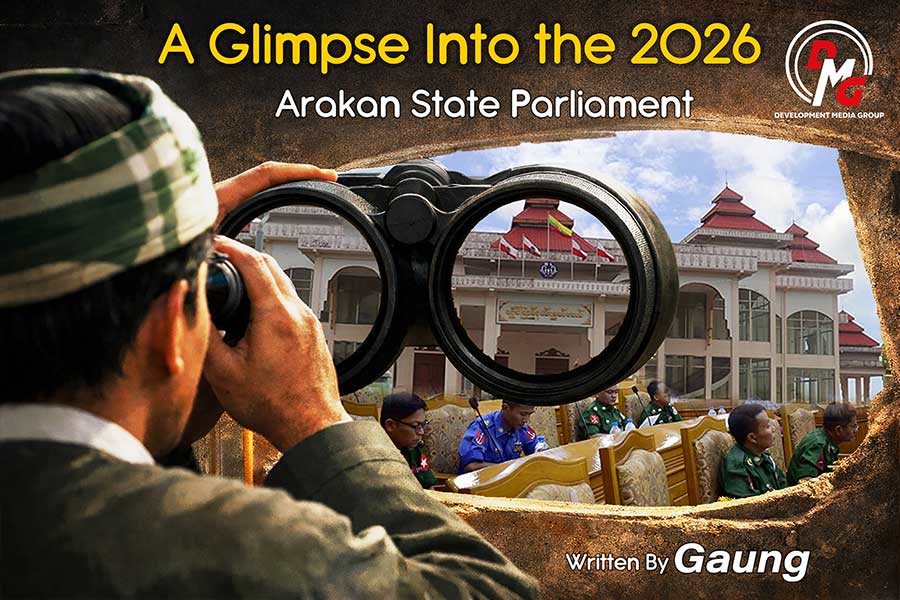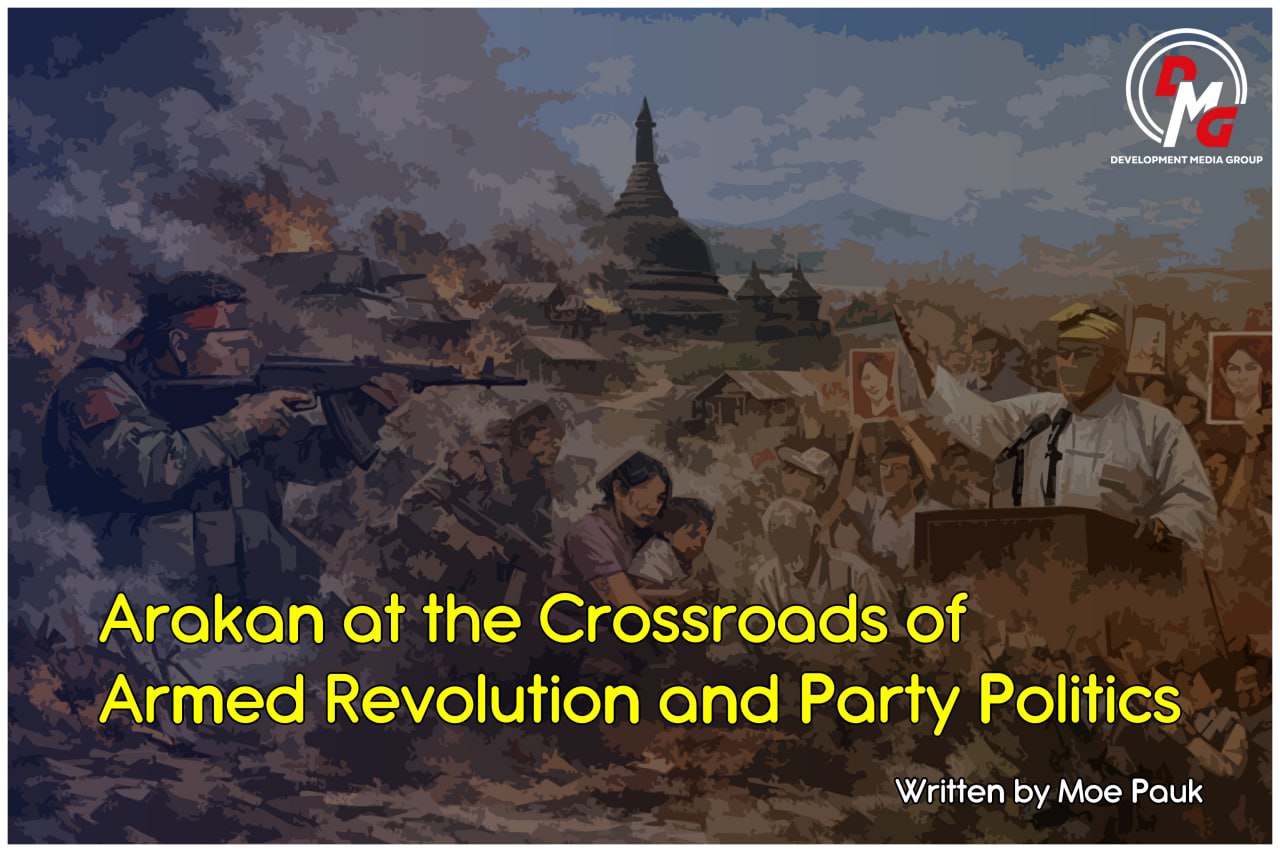- 15 mass casualty incidents from regime airstrikes reported in Arakan State since 2023
- Kyaukphyu IDPs forced to flee again amid junta airstrikes and artillery attacks
- New Diplomatic Movements Between Bangladesh’s New Government and the Arakan Public Administration
- Junta claims over 24 million ballots cast in 2025 poll, cites strong youth turnout
- ULA expands HIV prevention, healthcare services for sex workers in AA-held areas
No Medicine, No Medics: Isolation Exacerbates Arakan's Healthcare Crisis
The Tawphyarchaung region is made up of 51 villages mainly populated by ethnic Arakanese, Khami and Mro people.
The area can only be reached by boat, and its relative inaccessibility has meant that Tawphyarchaung's development has lagged in significant ways.
02 Dec 2024
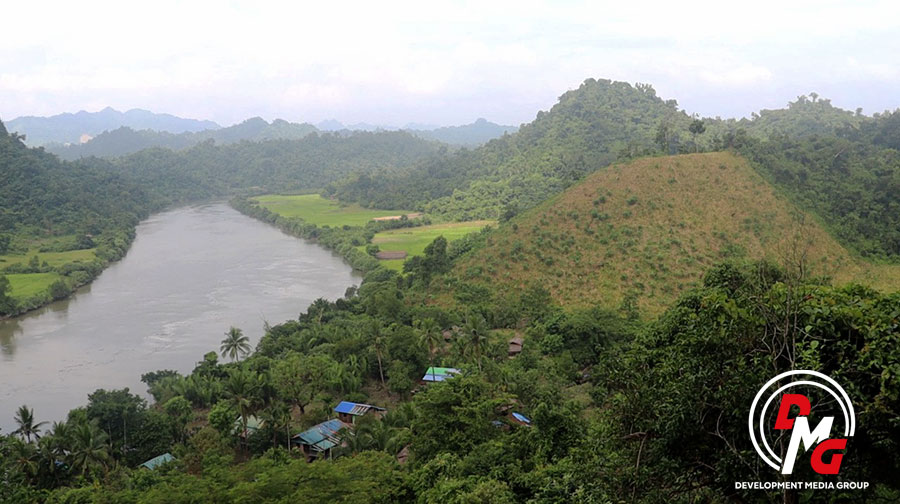
Written by Kyaw Thu Htay
Across Arakan State, drug shortages triggered by junta restrictions on travel and trade are plaguing residents - and in some places, even killing them.
Many places are running short of medicines while prices soar. Residents in remote areas have been particularly hard hit by rising costs and dwindling drug stocks.
Ko Aung Kyaw, a resident of Poeshweepyin Village in the Tawphyarchaung region, a remote area in Arakan State's Ponnagyun Township, said: "Some patients have died either because they can't find the medicines they need or they can't afford to buy them."
The Tawphyarchaung region is made up of 51 villages mainly populated by ethnic Arakanese, Khami and Mro people. The area can only be reached by boat, and its relative inaccessibility has meant that Tawphyarchaung's development has lagged in significant ways.
A small public hospital in Poeshweepyin Village is the only facility of its kind for residents of the Tawphyarchaung region. Earlier this year, however, the hospital ceased to operate for reasons that remain unclear.

Fighting has been raging in Arakan State for more than one year. Since it launched an offensive in November of last year, the Arakkha Army (AA) has seized 10 townships in Arakan State including Ponnagyun, and Paletwa Township in neighbouring Chin State.
The regime has hit healthcare facilities in AA-controlled townships with indiscriminate air attacks, posing challenges to restoration of the public healthcare system in Arakan State, which has been decimated by conflict and decades of neglect.
But for now, in this remote part of Ponnagyun Township, it is not clear how much good a functioning hospital would even do if it was not able to keep its medicine supplies stocked. U Thay Htan from Sinthe Village in Ponnagyun Township said: "There are many medicines that we can't buy even if we have money."
More than 20 people have died in the Tawphyarchaung region this year due to shortages of medicines, said residents.
When the cottage hospital in Poeshweepyin Village was in operation, residents from dozens of villages relied on it to address their health problems. But it was quite a long boat ride to the Poeshweepyin Village for many, and some patients who needed immediate medical attention died on the way.
U Aung Khin Tun, chairman of the local free funeral service association "Hna Lone Hla Arman" in Tawpyarchaung, said: "We can only travel by boat. We can do nothing when the engine breaks down on the way. It is worse if the patient is in critical condition."

Besides the cottage hospital in Poeshweepyin Village, there are a few rural healthcare centres in the Tawphyarchaung region. But they have been devoid of doctors or nurses, leading residents to rely on folk medicine practitioners.
Residents say they have concerns about receiving treatment from folk medicine practitioners, who they believe are not as competent as doctors, but have no choice.
"We don't have as much trust in them as we have in a doctor or a health assistant," said one such resident, Ko Aung Myat Soe. "But they are all we have, and we have to rely on them."
Fellow resident Daw Hla Tha Nu said she and others have been forced to resort to herbal remedies due to shortages of Western medicines.
"Some people seek treatment from folk medicine practitioners. Some people receive treatment on credit," she said. "Those who can't afford it simply take herbs."




